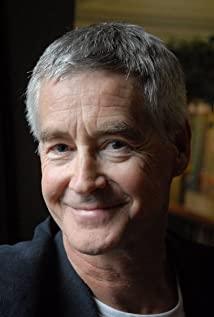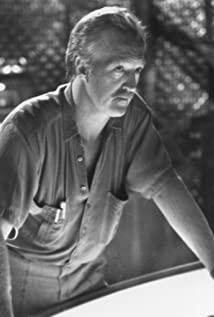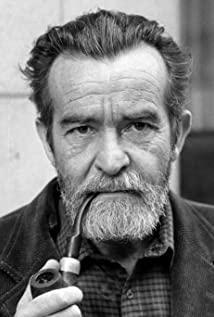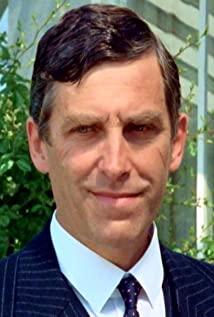After watching it for an afternoon, I had a lot of thoughts in my heart. I remembered Tolstoy, who went to learn how to make boots from farmers in his later years, and understood the reason why these old stubborn stubborn people did this: they have reached such a state, and the value of life can only be realized in the infinite. Only in the process of approaching God can we be redeemed.
At the beginning of the film, the twinkling eyes of the young Gandhi reflect his pure inner world. People born with vigor practice the words of God as their motto. Although their feet step through the mud, they will not be stained with bad luck. Reminds me of Duke Myshkin in "The Idiot", who treats people innocently and behaves like a child. Such a person suddenly sat in the office of some officials and big family, and said something that everyone didn't understand, and his face was sore and embarrassed. It seems that someone suddenly jumps in from outside the rules and talks about things that have nothing to do with utilitarianism. The worldly people will laugh at them for being so stupid.
Mahatma Gandhi's resistance began from the unequal treatment he experienced himself. Although he was educated in Britain in his youth, he still chose to stand on the national standpoint to seek rights for the masses because of his race and class. The influence of religion is carried out from beginning to end. India itself is a country with sectarian divisions. The people believe in God and fear God. Although they accept slavery, their piety is still there. Therefore, it is possible to mobilize the masses with the help of religion and the supreme will of gods, which is called spiritual inspiration.
When he was young, Gandhi was involved in politics, and he also used some means in his speech. The key to his speech was to hit the interests and wishes of the audience, arouse their emotions, incite their anger, and then act. Gandhi had a speech like Qu Yuan, he resisted with a gesture of generosity and righteousness, to the effect that they could torture me, insult me, break my bones, but I still couldn't give in.
In his prime years of intense struggle, he implemented the original "non-resistance concept" to the end, "If someone hits you in the left cheek, you must stretch out the right cheek to hit him." In fact, it coincides with Laozi's superior goodness. To practice a silent resistance with a soft policy is a wise policy to soften the opponent's will to power. Borrowing from Nietzsche's theory of the will to power, the ubiquitous will in the world lies in "assimilation", class assimilation, race assimilation, cultural assimilation, etc. Assimilation is also erosion. Colonization cannot be counted as assimilation, but only uses people as tools, only occupying human labor without appeasing people's hearts. Therefore, colonization will inevitably lead to resistance. Only spiritual assimilation and appeasement can truly gain people's hearts. Gandhi understood this.
Only the mind is supreme, and only spiritual education can make people completely submit to a certain existence. This is the reason why culture is above material. Those who succumb to interests are fickle, while those who have faith will be able to pass on culture from generation to generation for a long time. Religion is the highest cultural form that human civilization has achieved.
Speaking of the rudeness, stupidity and easy incitement of ordinary people at the bottom, politically they are taking advantage of the ignorance of the masses to commit fraud, but in the final analysis this method is short-term and cannot last. Later Gandhi learned the supreme law, and used the religious concept of great goodness to permeate his words, deeds and revolutionary strategies. During the struggle with the British colonists, Gandhi took off his clothes and sat on the lotus platform, showing his frankness and nudity with tenderness, similar to the half-crooked sitting in Buddhism, calling on everyone to burn clothes. The great people do not appear in a stubborn state, nor do they despise the barbarism of the people, but they pour out the deepest truth in the simplest words.
In the final analysis, people are simple, because nature has laws, and the human heart also has moral laws. This moral law is immutable and can be sublimated into the existence of faith, so it can cross races and touch the British people who are colonial powers. Because people live together on the earth, breathe the same air, and bathe in the same rain and dew, despite geographical differences and cultural differences, their common desires remain unchanged. The sage can recognize the desires of the human heart, and can also tolerate and influence their desires, loosening the blockage and making them flow naturally.
The water waves are soft, and the tides ebb and flow. He walked 240 kilometers to the Indian Ocean to get salt, and observed the laws of revolutionary historical changes with a silent and supple attitude. "The wild horse is also the dust, and the living things blow with the breath." People rely on the environment to survive, and their own life must conform to the natural form, and every breath and vegetation can be in the same rhythm. People walk on the earth and measure the land with every step. Every step is with primitive love. Walking is also a familiarity and respect for the land. In the eyes of a sage, there is no difference between small and large. Sitting in front of the common people in rough blouses is no different from sitting in the mansion of the princes and nobles. The coercion of power cannot attack his dignity, because his soul directly relies on the divinity. Life is extremely simple, and it is not good for brocade clothes and jade food. Standing on a bamboo stick and going around lightly, it means that there is no evil in the heart and nothing can erode it. Gandhi's actions are exactly what Tolstoy wanted to achieve.
If a person wants to be a sage, he must be ruthless in his desires and make his aspirations clear.
In the process of sanctification, there is also a struggle. This struggle starts with oneself first. There is a segment that makes people feel funny. Gandhi is a Brahmin noble. He must practice his philosophy and live in a shabby house with his wife. According to the rules, everyone should be Taking turns shoveling shit, the wife is delicate and expensive, and refuses. The two quarreled, Gandhi said: If you don't shovel shit, just get out of here, you are not worthy of being my wife. The wife sobbed and comforted: If you want to be holy yourself, you can't ask everyone around you to be like you. Gandhi repented after hearing the words, and his wife compromised, because his philosophy could not be changed.
Mahatma Gandhi swore four times to renounce lust in order to approach God, but all failed. Tolstoy even vented his anger on his wife in order to resist lust. Both can be called great, but their desire for sanctification is also unnatural, and so is counteracted. This kind of repentance, which cannot be fulfilled after swearing, has a much greater backlash than lust itself. However, it is in the process of fighting with himself that great people are infinitely perfected.
Heroes are high-spirited, seek light and greatness in everything, and adopt an upright attitude of open resistance, but the wise have another attitude: they do not resist nor swear.
The highest good is like water. Although it tends toward God, it does not surpass God. It remains humble to the eternal and great gods, admits that one’s flesh is mortal, and enjoys the happiness of the world bestowed by God. Two trends of thought are involved here, one is the Greek, which advocates natural and pleasant enjoyment and the expression of nature; the other is the Hebrew thought, which advocates rational restraint and disciplines one's own desires with suffering and self-punishment. There is no difference between the two ideological trends, and they can only take suitable forms at the suitable stage.
From the depth of understanding that can be achieved so far, that's all I've talked about, and then I mentioned in the first two paragraphs: Religion is the highest cultural form of human civilization, gods are above all things, and the core of religion is great love —If I have the power to prophesy, and understand all mysteries and all knowledge. And there is a complete letter that enables me to move mountains, but without love, I am nothing. The power of prophecy will eventually be lost. The ability to speak in tongues will eventually cease, and knowledge will eventually cease to exist. Only love never ends. (Excerpt from 1 Corinthians)
View more about Gandhi reviews











